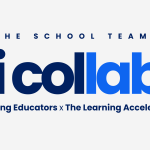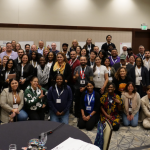
As educators work to meet an evolving set of student needs and hopes, AI offers schools a unique opportunity to improve upon traditional teaching and learning models. However, for educators to harness new classroom practices they need access to tangible, actionable examples of how AI can support their work, improve student experiences, and promote equitable […]

Education leaders across the country are exploring how to harness artificial intelligence (AI)’s power to redefine what’s possible for school systems. To advance this work, Google for Education and GSV Ventures selected 24 top leaders from K-12 systems nationwide to participate in the 2023-24 Google GSV Education Innovation Fellowship. The Learning Accelerator (TLA) had the […]

High-quality virtual and hybrid learning (VHL) has tremendous capacity to expand access and opportunity to rigorous, relevant, and engaging education opportunities for students who need an alternative or supplement to traditional brick-and-mortar schooling. We know these models exist across the United States, many of which have considerable evidence that they can facilitate learning acceleration for […]

The rapid rise of artificial intelligence (AI) is generating powerful new applications permeating countless sectors and industries. Yet, while AI has massive potential to impact education, translating AI’s promise into instructional practices remains an ambiguous, complex challenge. To address this, Leading Educators and The Learning Accelerator have launched the School Teams AI Collaborative, bringing together […]


At Plymouth-Canton Community Schools’ Virtual Academy, we’ve embarked on a journey to redefine virtual learning. Our goal is to offer a flexible, engaging, and student-centered learning environment that serves our diverse student population. Central to this transformation has been our commitment to listening to our stakeholders – students, parents, and teachers – and ensuring we […]
